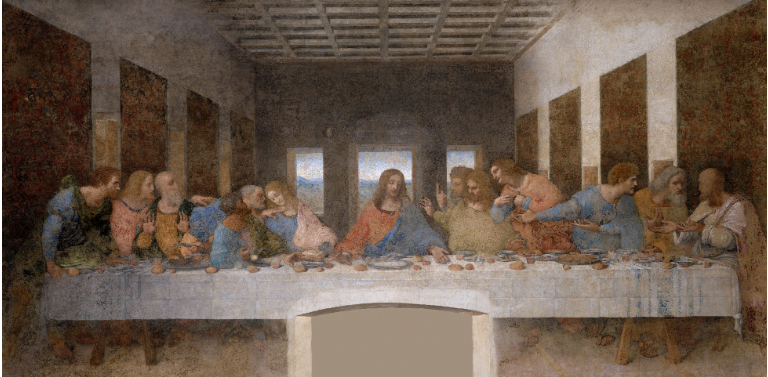Book Review: “These Violent Delights” is an Angsty Rollercoaster of Unhinged Gangsters and Hard-Hitting Family Dynamics, with Unnecessary Love Interest Slander by Cailey Tin
- Breanna Crossman
- Jan 11, 2024
- 5 min read
The historical world of Shanghai in the pivotal 1920s comes to life with a part sci-fi, part Romeo
and Juliet retelling—These Violent Delights. I’m sure every YA reader has heard of this New
York Times fantasy bestseller and the debut novel of Chloe Gong, so without further ado, let’s
get into this review.

Image from Fanfi Addict
The Characters
What I love about Gong’s approach to writing Juliette is that she’s not the main character who
"is tough" but would cave to her soft heart the first chance she gets. Enough female protagonists
are "forgiving but ruthless", in the sense that they lock themselves behind walls that tear down
the minute their attractive male counterpart comes knocking.
These Violent Delights does not tolerate this nonsense—Roma and Juliette are never on the
"petty" spectrum of the enemies-to-lovers trope; every intimate interaction is consented to by both, and there’s no forced, overdone, back-and-forth banter that doesn’t hit the point and can’t seem to end.
My favorite thing about this novel is that it allows for fewer petty "misunderstandings" wherein the characters simply can’t communicate with each other—if Juliette sees blood all over her staircase, that would have a more certain scent of betrayal than if they had a small argument that "led to a blowout."
Juliette remains likable despite not doing anything particularly kind because Gong uses a witty protagonist-developing strategy: making Juliette’s environment worse than her. This girl’s motivation to find the creator of this unnatural monster that is dwindling her people's population isn’t directly driven by the goodness of her heart, or at least, what’s left of it.
Instead, she’s fighting tooth and nail to take ownership of her only sense of identity, being a respected heiress who’s perceived to be unnecessarily cruel when some rumors were nothing more than that—rumors. Juliette is more feared than she is well-liked, and throughout the book, we get an inside glimpse of her frustration with how the people she loves so much could think her to be a coldhearted monster (that she is on the outside).
Juliette’s parents don’t—can’t spend enough time with her, and thus she’s left with crumbs of angst, restlessness, and the certainty that Lord and Lady Cai (her parents) can’t assure her that she will be a good enough leader because they’re unsure too. It’s breathtaking to read a character who craves respect like they need it to breathe, or in Juliette’s case, to be.
The Characters
TVD didn’t have any unrealistic characters; only ambitious, goal-driven molds of society that succumbed to the pressure of their environment. I rarely see such specific archetypes of people on a day-to-day basis, especially because this is a historical retelling, but their struggles and conflicts are so real that they come alive to the point that it’s timeless. They breathe on the pages each time a character’s decision decides the fate of the words to come.
None of the (main) characters are doing anything for the good of the world, despite some "save the world" moments hinted at in plot beats, like when a kindly woman begged Juliette’s cousin, Kathleen, to save the city from this madness. Instead of making these characters out to be ‘heroes’, the novel focuses more on Kathleen’s coming to terms with her identity as a trans woman, freshly seeking more expectations to be placed on her shoulders.
Each character goes on a separate journey as they try to separate themselves from the colonialism that arises the more they ignore it. I thoroughly enjoy how the internal conflicts are scarier than the monster creeping along on the outside.
The Plot
The beginning takes some time to build up, particularly because Roma and Juliette lead such ironically parallel lives with different characters that play the same role in their lives—at one point, the first few chapters felt repetitive because they were making the same discoveries, but later down the line, it proved just how in sync they were.
Fortunately, the slow buildup doesn't lead the story to a dull climax. Some character dynamics aren’t directly affecting the climax plot-wise, but their purpose is to thoroughly represent the characters and their experiences during a period that has been passively studied in textbooks. Gong does a fantastic job spotlighting the narratives that spent centuries going untouched by the modern media.
Her descriptions of Shanghai during this 1900s era are historically accurate and written with a deft, raw hand. The point comes across smoothly: the West couldn’t take the native people away; they could do with everything else.
Despite the monster being the central conflict of this book, These Violent Delights is more character-driven than plot-driven because it is a Romeo and Juliet retelling, and our protagonists are actively searching for the killer, whether their fathers ordered them to.
I don’t think my fellow readers are here for the mystery of who is controlling the monster, because the investigation itself wasn’t too interesting. The creator of this monster and his real contribution to the story are less focused on the surreal technology of the monster itself. Instead, it's highlighting the colonialist instincts and audacious actions that such men had against Chinese women before. Not excluding the heiress of the most dangerous network of criminals.
In essence, finding the culprit isn’t the book’s end goal. The political problems don’t dissolve without evidence that would give away that our protagonists are working together, much less would it actually destroy the monster or decide what would become of the city, and whose it would be in the aftermath.
As someone who typically reads fantasy quests with hidden riddles and extravagant revelations, I find this intentionally straightforward plot refreshing because it’s realistic. Since this is historical fiction, there is only so much it can do magic-wise.
The Summary
Overall, These Violent Delights peers closely into every angle of the characters’ experiences, discrimination, and conflict, including hard-hitting family dynamics (like Kathleen’s with her father), which include the ones that are functional, dysfunctional, and somewhere in between.
Chloe Gong’s beautifully penned debut novel encapsulates struggling with the exhausting image of the Americanized flapper girl who wears Western dresses, has her Chinese name buried into the perils of memory, and feels alienated around her people, her family.
This novel is said to have a strong crossover between Young Adult and New Adult. However, I feel strongly that it remains YA because of its coming-of-age themes woven into the bustling, so-called "Cosmopolitan Paris of the East" that was Shanghai. The year is 1926.
Cailey Tin hails from the Philippines, writing or editing for magazines such as Incandescent Review, Paper Crane Journal, the borderline, and Incognito Press. Her poetry and other shenanigans are published or forthcoming in Eunoia Review, Raven Review, Fairfield Scribes, Alien Magazine, and elsewhere. When not writing, she’s engrossed in global history, playing the piano, or daydreaming. Instagram: @itscaileynotkylie



Comments